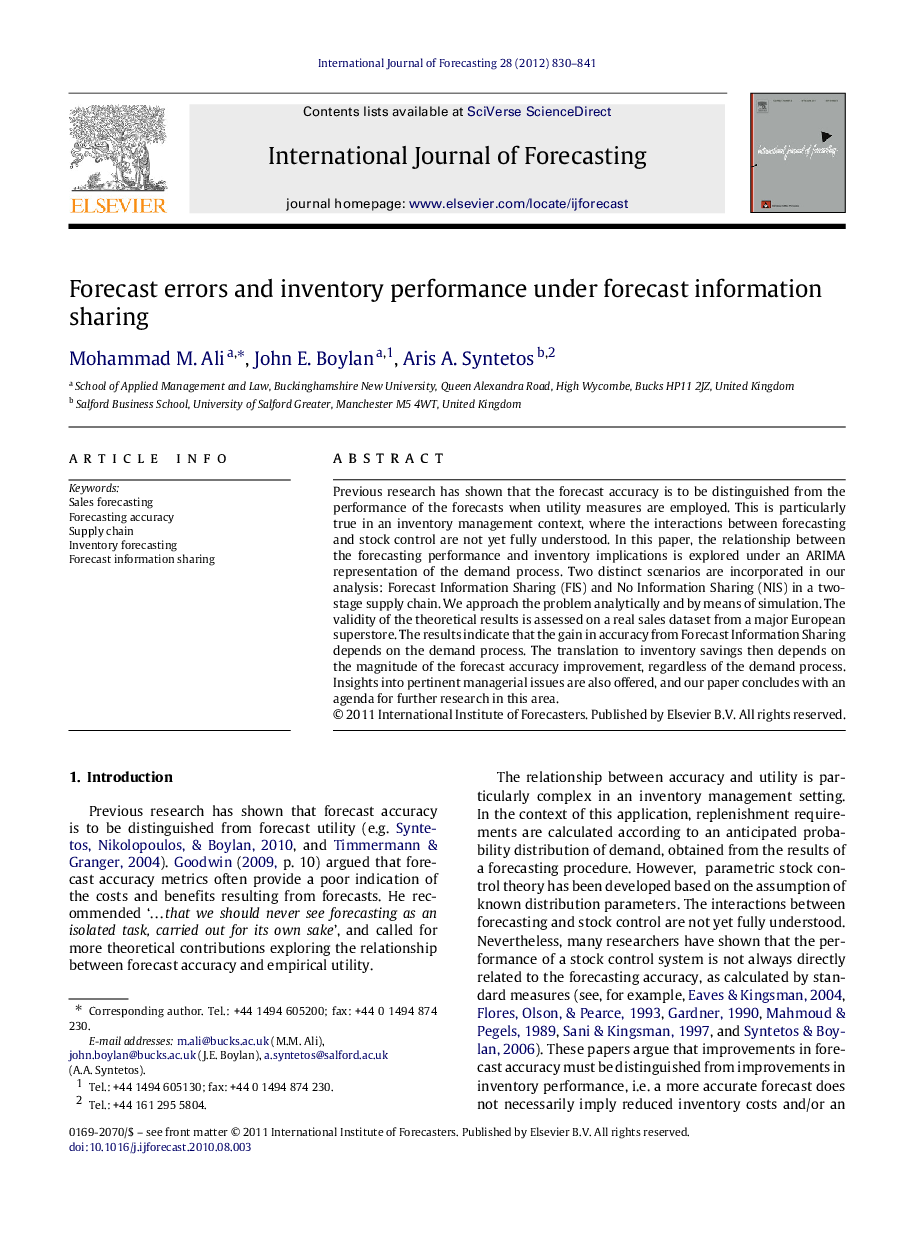| Article ID | Journal | Published Year | Pages | File Type |
|---|---|---|---|---|
| 999640 | International Journal of Forecasting | 2012 | 12 Pages |
Previous research has shown that the forecast accuracy is to be distinguished from the performance of the forecasts when utility measures are employed. This is particularly true in an inventory management context, where the interactions between forecasting and stock control are not yet fully understood. In this paper, the relationship between the forecasting performance and inventory implications is explored under an ARIMA representation of the demand process. Two distinct scenarios are incorporated in our analysis: Forecast Information Sharing (FIS) and No Information Sharing (NIS) in a two-stage supply chain. We approach the problem analytically and by means of simulation. The validity of the theoretical results is assessed on a real sales dataset from a major European superstore. The results indicate that the gain in accuracy from Forecast Information Sharing depends on the demand process. The translation to inventory savings then depends on the magnitude of the forecast accuracy improvement, regardless of the demand process. Insights into pertinent managerial issues are also offered, and our paper concludes with an agenda for further research in this area.
